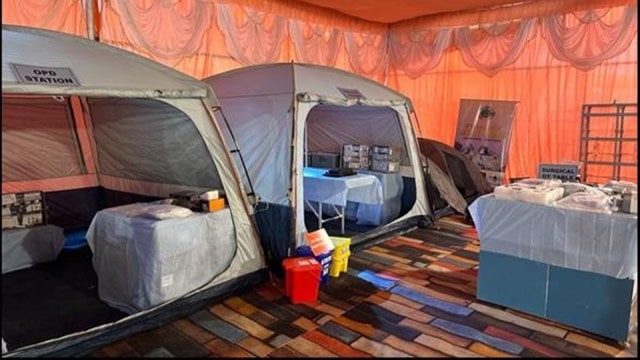Anonna Dutt is a Principal Correspondent who writes primarily on health at the Indian Express. She reports on myriad topics ranging from the growing burden of non-communicable diseases such as diabetes and hypertension to the problems with pervasive infectious conditions. She reported on the government’s management of the Covid-19 pandemic and closely followed the vaccination programme. Her stories have resulted in the city government investing in high-end tests for the poor and acknowledging errors in their official reports. Dutt also takes a keen interest in the country’s space programme and has written on key missions like Chandrayaan 2 and 3, Aditya L1, and Gaganyaan. She was among the first batch of eleven media fellows with RBM Partnership to End Malaria. She was also selected to participate in the short-term programme on early childhood reporting at Columbia University’s Dart Centre. Dutt has a Bachelor’s Degree from the Symbiosis Institute of Media and Communication, Pune and a PG Diploma from the Asian College of Journalism, Chennai. She started her reporting career with the Hindustan Times. When not at work, she tries to appease the Duolingo owl with her French skills and sometimes takes to the dance floor. ... Read More
Operation Sindoor | Portable hospitals moved to border areas: Know all about their features
The Cube is a full-fledged hospital that comes equipped with an operation theatre.
 The Cube closest to the border is available at Sher-i-Kashmir Institute of Medical Sciences, which can be deployed at the frontlines if needed. (Photo: PIB)
The Cube closest to the border is available at Sher-i-Kashmir Institute of Medical Sciences, which can be deployed at the frontlines if needed. (Photo: PIB)Amid escalating tension between India and Pakistan, indigenously developed portable hospitals — designed for emergency situations and equipped to treat bullet injuries, fractures, and severe bleeding — have been delivered by road to key hospitals near the border areas as part of health preparedness efforts. Additionally, 2,000 healthcare personnel have been trained at these hospitals.
A team of experts from the HLL Lifecare Limited has been delivering BHISHM Cubes — indigenously developed portable hospitals — and training the staff to use them at big, tertiary care hospitals close to the border regions across the country, including Jammu, Rishikesh, Bhatinda, Kolkata and Shillong. The Cube closest to the border is available at Sher-i-Kashmir Institute of Medical Sciences, which can be deployed at the frontlines if needed.
Meanwhile, Union Health Minister JP Nadda chaired a high-level meeting on Friday to review the emergency preparedness of health systems. Hospitals have been asked to ensure availability of essential drugs, adequate supply of blood, oxygen and trauma care kits. AIIMS-Delhi and other Central government hospitals have mobilised doctors and nurses with supplies. Mock drills have been conducted at hospitals such as AIIMS, PGIMER and JIPMER among others. A 24X7 control and command centre will coordinate the efforts and support the states.
What is a Cube?
The Cube is not just a first-aid tent that can deal with the injured before moving them to a nearby hospital. It is a full-fledged hospital that comes equipped with an operation theatre capable of dealing with serious injuries. The set-up consists of two large cubes made up of smaller modular cubes that pack various medical equipment, consumables and medicines within. “The Cubes will be equipped to handle medical emergencies such as bullet injuries, fractures, or severe bleeding,” said Air Vice Marshal Tanmoy Roy from HLL, a public sector undertaking.
These units are also equipped to collect blood from local donors and transfuse it to the injured. “Each Cube contains blood bags for collection and kits to test for blood-borne infections such as HIV and hepatitis. It is also equipped to cross-match the blood type of the donor and the person in need. So, in case blood is needed, it can be taken from donors in the region itself,” explained Roy.
The team from Delhi has already trained around 2,000 healthcare personnel. Some are now master trainers, who in turn can train others in the hospital and other health facilities nearby. “At present, this number is enough in case the Cubes have to be deployed,” said Roy.
What’s the capacity of a Cube?
These indigenously developed portable hospitals were first showcased by India during its G20 presidency. They can handle 200 different types of diseases and health emergencies.
What about their efficacy?
India gave them to Ukraine last year. One of the Cubes was also deployed in Ayodhya during the inauguration of the Ram Temple, where a heart attack patient could be revived with hospital-quality care.


- 01
- 02
- 03
- 04
- 05






























